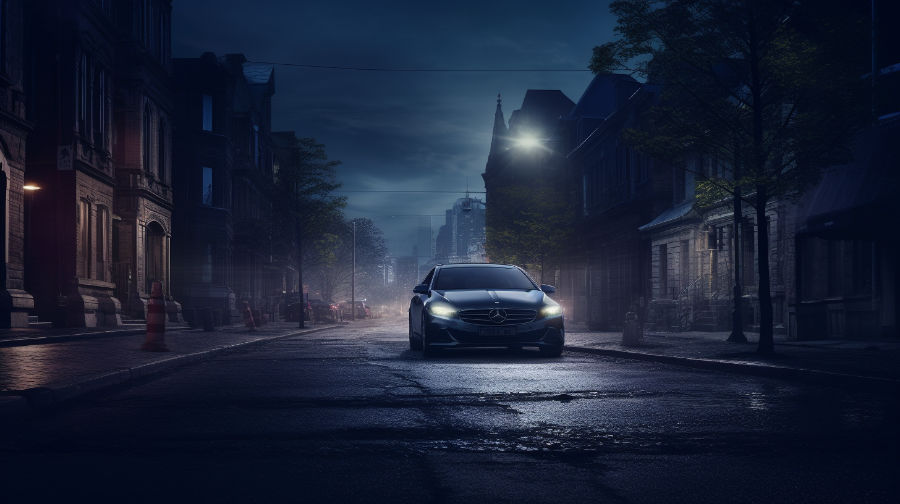Are you tired of fumbling in the dark, desperately searching for the elusive switch to turn on your car lights? Well, fear not, because modern technology has come to your rescue! Gone are the days when you had to remember to manually switch on your car lights at night. Thanks to the ingenious invention of automatic light sensors, your vehicle now possesses the power to illuminate the road ahead without any effort on your part.
These smart sensors, like vigilant guardians, detect the absence of sunlight and spring into action, ensuring your safety and visibility during those dark, moonlit hours. But wait, there’s more! If you prefer to take control, you can still wield the power to manually switch on your car lights.
So, whether you’re a fan of the mystical wonders of automation or a firm believer in the old-fashioned ways, read on to discover the importance of properly functioning car lights and everything you need to know about this illuminating topic.
Key Takeaways
- Automatic light sensors in cars activate headlights in the dark
- Common car lighting issues include burnt-out bulbs and faulty wiring
- Properly functioning car lights are crucial for safe driving
- Regular maintenance of car lights is necessary for clear visibility
Understanding Car Lighting Systems

Do you ever wonder if your car lights automatically turn on at night, or if you have to manually switch them on? Understanding car lighting systems is essential for every driver.
Car headlight regulations vary by country, but most modern cars are equipped with automatic light sensors that activate the headlights when it gets dark. However, common car lighting issues, such as burnt-out bulbs or faulty wiring, can still occur and require manual intervention.
Automatic Light Sensors
At night, you’ll notice that the lights on your vehicle come on seamlessly, thanks to the intuitive automatic light sensors. These sensors are designed to detect the level of ambient light and automatically turn on your headlights when it gets dark.
The benefits of automatic light sensors include enhanced safety, as they ensure your car is always visible to other drivers. However, common issues with these sensors can include malfunctioning due to dirt or damage, resulting in the lights not turning on or staying on permanently.
Manual Control of Car Lights
You can easily adjust the brightness of your vehicle’s headlights to suit your preference with a simple twist of a knob. Many cars today have a dimming feature that allows you to reduce the intensity of your headlights at night. This can help prevent blinding other drivers and ensure safer driving conditions. It’s important to note that while you have control over your headlights, there are legal requirements that dictate when they should be turned on, such as during low visibility or when it’s dark outside.
| Low Beam | High Beam | Off | Legal Requirements |
|---|---|---|---|
| Dim | Bright | Off | Yes |
Importance of Properly Functioning Car Lights

Imagine driving down a dimly lit road, relying solely on your vehicle’s functioning lights to illuminate the way ahead and ensure your safety. Safe driving practices dictate the importance of properly functioning car lights.
Regular maintenance of car lights is crucial to ensure they’re clean, aligned, and in good working condition. This not only helps you see the road clearly but also ensures that other drivers can see you, reducing the risk of accidents.
Conclusion and Final Thoughts
In conclusion, it’s vital to ensure that your vehicle’s lights are always in optimal condition, as this not only guarantees your safety but also enhances visibility for other drivers on the road. Automatic car light sensors have their pros and cons. While they can provide convenience by automatically turning on the lights at night, they may not always accurately detect low light conditions. Faulty car lights can significantly impact road safety, as they reduce visibility and increase the risk of accidents.
| Pros of Automatic Car Light Sensors | Cons of Automatic Car Light Sensors |
|---|---|
| Convenient | May not accurately detect low light conditions |
| Enhances visibility for other drivers | Can cause lights to turn on unnecessarily |
| May not work effectively in extreme weather conditions | |
| Can be expensive to repair or replace |
Frequently Asked Questions
How do car lighting systems work during the day?
During the day, car lighting systems use daytime running lights (DRLs) to enhance visibility. These lights are automatically activated by light sensor technology, ensuring that you can be seen by other drivers on the road.
Are there any legal requirements for car lights during the daytime?
During sunset, it is not legally required to have your car lights on. However, using daytime running lights can enhance your visibility on the road, making it safer for you and other drivers.
Can I adjust the sensitivity of the automatic light sensors in my car?
Yes, you can adjust the sensitivity of the automatic light sensors in your car. This allows you to customize when the lights turn on based on your preference. The benefits of automatic light sensors include increased visibility and safety while driving.
Are there any situations when it is necessary to manually override the automatic light sensors?
In certain situations, it is necessary to manually override the automatic light sensors in your car. This is especially important in low-light conditions, inclement weather, and when encountering potential hazards on the road. Relying solely on automatic lights can pose dangers.
What are the common issues that can affect the proper functioning of car lights?
Common issues that can affect the proper functioning of car lights include headlight malfunctions, such as burnt-out bulbs or faulty wiring, and dimming headlights due to a weak battery or alternator problems.
Conclusion
So there you have it, the importance of properly functioning car lights cannot be overstated. They’re not just there for aesthetics, but serve a crucial purpose in ensuring your safety on the road. Whether it’s the automatic light sensors that activate your car lights at night or the manual control you have over them, it’s essential to have them in good working order.
Remember, driving without properly functioning car lights is like navigating through a pitch-black maze with only a flickering candle – it’s simply not worth the risk. Stay safe and keep those lights shining bright!
